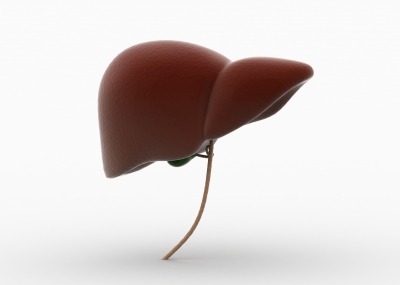Gilead Sciences’ selonsertib has failed to achieve primary end point in the Phase 3 study of nonalcoholic steatohepatitis (NASH).

Image: NASH is a chronic and progressive liver disease characterized by fat accumulation and inflammation in the liver. Photo: courtesy of interphasesolution / FreeDigitalPhotos.net.
Subscribe to our email newsletter
Stellar-3 is a randomized, double-blind and placebo-controlled trial, which assessed the safety and efficacy of selonsertib in patients with bridging fibrosis (F3) due to NASH.
According to the company, selonsertib did not meet the pre-specified week 48 primary endpoint of a ≥ 1-stage histologic improvement in fibrosis without worsening of NASH.
Selonsertib is an investigational, once daily and oral inhibitor of apoptosis signal-regulating kinase 1 (ASK1), which enhances inflammation, apoptosis (cell death) and fibrosis in settings of oxidative stress.
Selonsertib, cilofexor, and firsocostat, alone or in combination, are investigational compounds, and have not secured approval from the US Food and Drug Administration (FDA) or any other regulatory authority.
In the study of 802 enrolled and dosed patients, 9.3% of patients treated with selonsertib 18mg and 12.1% of patients treated with selonsertib 6mg achieved a ≥ 1-stage improvement in fibrosis as per the NASH Clinical Research Network (CRN) classification without worsening of NASH after 48 weeks of treatment compared to 13.2% against placebo, said Gilead.
In the Stellar-3 study, the company randomized eligible adults aged between 18 and 70 years to secure selonsertib 18mg, selonsertib 6mg or placebo for up to 240 weeks, orally once daily.
The secondary endpoints of the trial are the proportion of patients who have a ≥ 1-stage improvement in fibrosis without worsening of NASH at week 240, and the proportion of patients who have NASH resolution without worsening of fibrosis at week 48 and week 240.
Gilead Sciences chief scientific officer and research and development head Dr John McHutchison said: “While we had hoped for different outcomes from the STELLAR program, we remain focused and committed to developing highly effective treatments for patients living with advanced fibrosis due to NASH.
“We are actively exploring the STELLAR data and will work with external collaborators like PathAI and insitro, to further our understanding of this complex disease and advance our development programs.”
 Advertise With UsAdvertise on our extensive network of industry websites and newsletters.
Advertise With UsAdvertise on our extensive network of industry websites and newsletters.
 Get the PBR newsletterSign up to our free email to get all the latest PBR
news.
Get the PBR newsletterSign up to our free email to get all the latest PBR
news.

